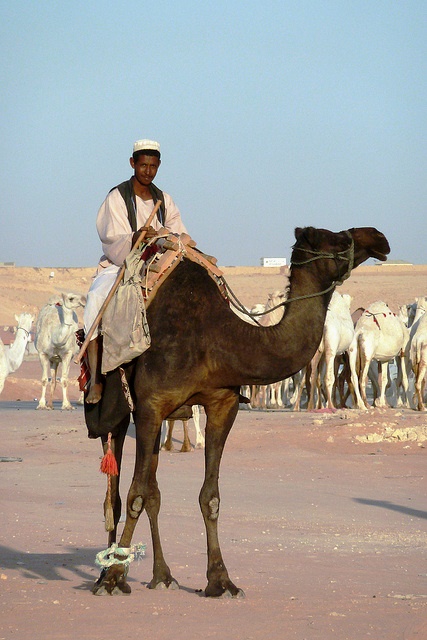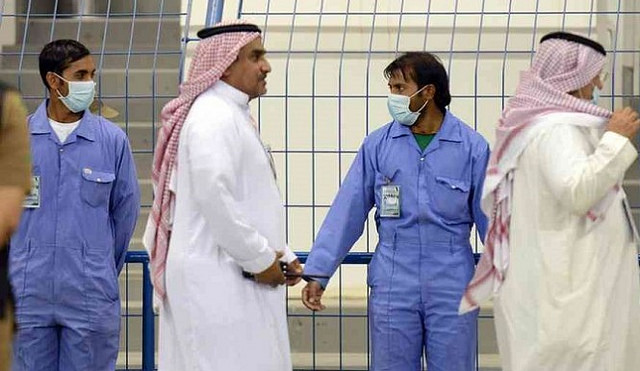Saudi Arabia Blames Camels for MERS Outbreak in US
/Allyson Cartwright, Contributing JournalistLast Modified: 20:24 p.m. DST, 14 May 2014
 SAUDI ARABIA, Riyadh— A second case of an American infected with the MERS virus has been confirmed in Orlando, Florida. As MERS breaches the US border, death tolls of those infected with the virus in Saudi Arabia continue to rise. MERS originated in Saudi Arabia, where they claim that camels are the source of the pathogen that causes the respiratory virus.
SAUDI ARABIA, Riyadh— A second case of an American infected with the MERS virus has been confirmed in Orlando, Florida. As MERS breaches the US border, death tolls of those infected with the virus in Saudi Arabia continue to rise. MERS originated in Saudi Arabia, where they claim that camels are the source of the pathogen that causes the respiratory virus.
There are near 500 diagnosed cases of MERS—short for Middle East Respiratory Syndrome— in Saudi Arabia alone. The Saudi health ministry reports that half of these MERS victims were diagnosed in April of this year. According to Ahram Online, the death toll of MERS victims in Saudi Arabia stands at 121 deaths, four of those within the last week.
The Saudi Ministry of Agriculture has issued a state public health through the official Saudi Press Agency. They urge people who are handling animals to “exercise caution and follow preventive measures”. This kind of warning has not come from Saudi officials since the MERS virus was discovered in 2012. Health experts conclude that the most dangerous animals to handle are camels, a vital livestock for the nomadic culture of Saudi Arabia.
The Ministry of Agriculture suggests when dealing with camels, "It is advisable to wear protective gloves, especially when dealing with births or sick or dead.” The National Turk says that the ministry has also warned that any camel milk should be boiled and camel meat thoroughly cooked before consumption. Also, gloves and face masks should be worn when handling animals or coming in contact with infected people. Despite the link between the MERS pathogen and camels, ABC News says that scientists do not know how the virus is spreading from the animal to people.
There is international concern as the virus is spreading globally. The hajj, the pilgrimage of Muslims to the Saudi cities of Mecca and Medina, will be occurring in this fall as well as during the Ramadan holy month of July. The large numbers of people, estimated at two to five million, will be travelling to Saudi Arabia from all over the world and putting themselves at risk of MERS infection. Some countries have even considered imposing travel restrictions to Saudi Arabia.
In Egypt, where their first case of MERS was diagnosed this April, there is deliberation on banning pilgrims from participating in the Hajj. Ahram Online reports that former Egyptian health minister and member of the special task force for the MERS virus, Mohammed Awad Tag El-Din, said if the “epidemic status of the virus and its development” gets worse then travel restrictions will be considered.
The World Health Organization (WHO) conducted a 5-day mission to the kingdom of Saudi Arabia to evaluate the outbreak of the virus. WHO determined that they “recommend the application of any travel or trade restrictions, including for upcoming pilgrimage travel to Saudi Arabia.”
NBC News reports that 17 countries, mostly on the Arabian Peninsula, currently have cases of infected individuals. Countries that have reported MERS infections include Kuwait, Oman, Qatar, Tunisia, United Arab Emirates, the United States and several countries in Europe. NBC News also say that with Dubai being the world’s busiest airport and the Middle East’s growing role in international trade, the MERS virus could eventually have economic implications that go beyond its dangers to health.
Follow Allyson on Twitter Twitter: @nahmias_report Contributing Journalist: @allysoncwright
Related articles
- Camels Confirmed as Source of MERS (4umf.com)
- Saudi Arabia: Two medical consultants dead from MERS (crofsblogs.typepad.com)
- Saudi Arabia warns of MERS risk from camels as cases rise (trust.org)
- CDC Confirms First Case of Mysterious MERS Virus in U.S. (theblaze.com)
- Saudi Arabia warns of MERS risk from camels (aljazeera.com)













